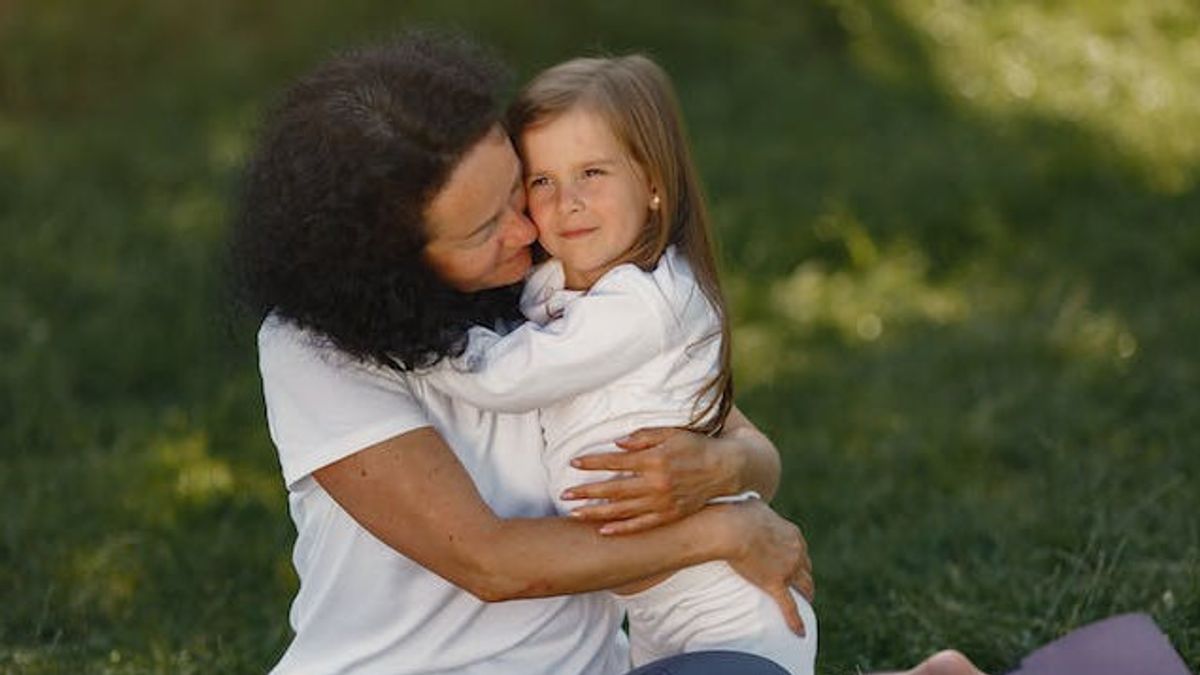JAKARTA - Recently, a study in the UK showed that when children recognize emotions, they pay more attention to what is heard than what is seen. If adults observe more emotions, children will pay more attention to what they hear in a situation. So, even if parents put a bold face in front of their children, but the voice describes fear, it is likely that children will catch the fear of their parents.
Research published in the Journal of Experimental Child Psychology, reported by Very Well Family, Friday, December 8, reviews adult and children's responses to emotional body language and emotional voice. The results of the review reveal that sometimes body language matches the emotions of sound and sometimes not.
"When we asked them to ignore what they saw and tell us what emotions were in that voice, all age groups could do it without a problem," explained study author Paddy Ross, PhD.
But when we showed them exactly the same stimulation. But this time it asked them to ignore what they heard and tell us what emotions they saw. Adults can do this but children find it difficult, "he said.
"(Children) actively capture emotions from voices even though they have been asked to ignore them. This is the child's natural response," said Ross.
This study supports previous research that states that children have dominant hearing awareness. But this research is the first study to focus specifically on emotional interpretation.
When parents are feeling emotionally unstable, they often try to protect their children from these emotions by "showing a happy face". This study shows that showing a "happy face" is actually less effective for children.
Clinical psychologist Julie Futrell, PhD, said parents who try to hide emotional turmoil from their children will not be effective, can also be destructive.
"Early childhood have a sharp intuition," he said.
"They often 'feel' emotions, and they often get annoyed when what they feel doesn't match what their parents say," Futrell continued.
Parents should need to share what they feel, explain the reason, and think about how to talk honestly about emotions with their children. When parents can talk about feelings and emotions, then also try discussing how to manage them.
Honestly, about the efforts of parents to overcome stress or share what they do to maintain anger. Can show children that parents are human, always grow and strive to be better. And this also helps in developing the emotional well-being and resilience of children.
SEE ALSO:
Explaining feelings to children can make some parents feel uncomfortable because they are not sure that the information provided is too much. Futrell offers parents some age-appropriate tips in sharing emotions with their children.
For Small Children
Children aged 2 to pre-teen have an increasing awareness of emotions. They can understand and learn about managing emotions if adults talk to them in understood words. This age group does not require all the details, but letting them see emotions and explaining the feelings of parents can help them learn.
For Youth
For teenagers, parents need to be more open and honest. In this way, children will learn to understand and also feel appreciated as children who are growing. Also, they are also more aware of the things that happen in the world around them. Even so, it would be nice not to burden children with parental problems, but to guide them in dealing with emotions by providing examples.
Sometimes there are times when parents should protect their children until they have the opportunity to discuss the situation properly. Ross explained that what the child heard could change his mood towards what was happening around him at that time.
He suggested, if there is an argument between parents when the child is at home, then prepare a cellphone with positive music or podcasts that are useful for diverting children's attention for a moment.
The English, Chinese, Japanese, Arabic, and French versions are automatically generated by the AI. So there may still be inaccuracies in translating, please always see Indonesian as our main language. (system supported by DigitalSiber.id)


















